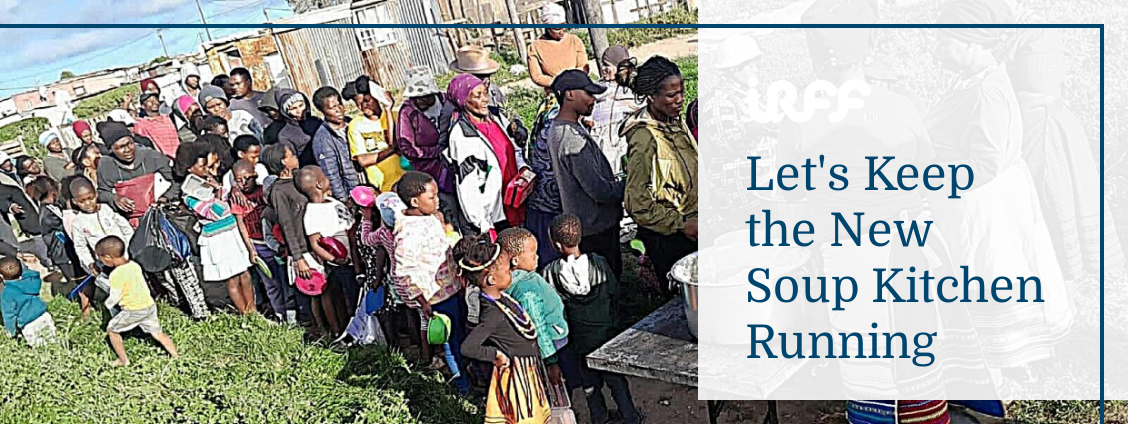
A New Food Lifeline For South Africa
She was just 10 years old. She hadn’t eaten in two days. And when she collapsed in the soup line, she whispered, “I’m afraid there’ll be no food left when I reach the front.”
This is happening in South Africa – every day. In just 18 months, 973 children died from severe acute malnutrition (SAM). Most didn’t die directly from SAM, but from other causes where malnutrition was a silent killer.
One in three children under five suffers from stunting, which damages brain development and locks them into poverty and chronic illness.
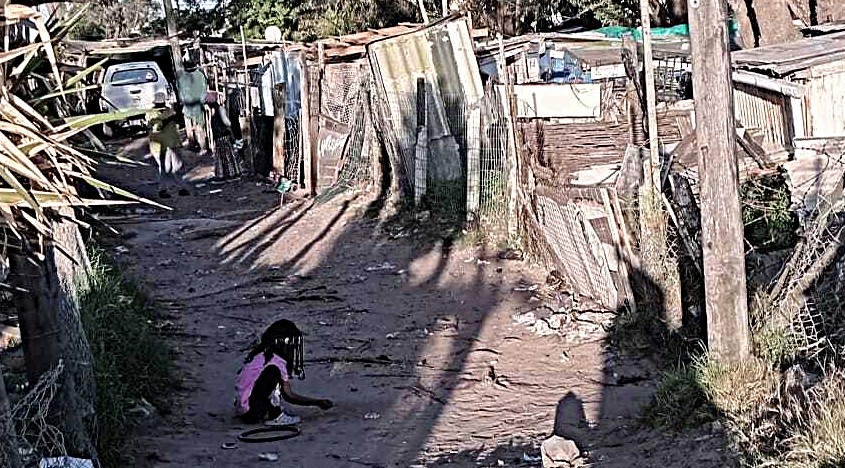
Where do the children play? – In the heart of urban neglect, a child finds joy amid filth and squalor.
In the Eastern Cape, over 30% of households don’t have enough to eat. Nelson Mandela Bay is even worse. With unemployment at 33.2%, many parents go without food so their children can eat.
The Human Rights Commission calls it “systemic hunger” – a crisis worsened by failing nutrition programmes and poor coordination.
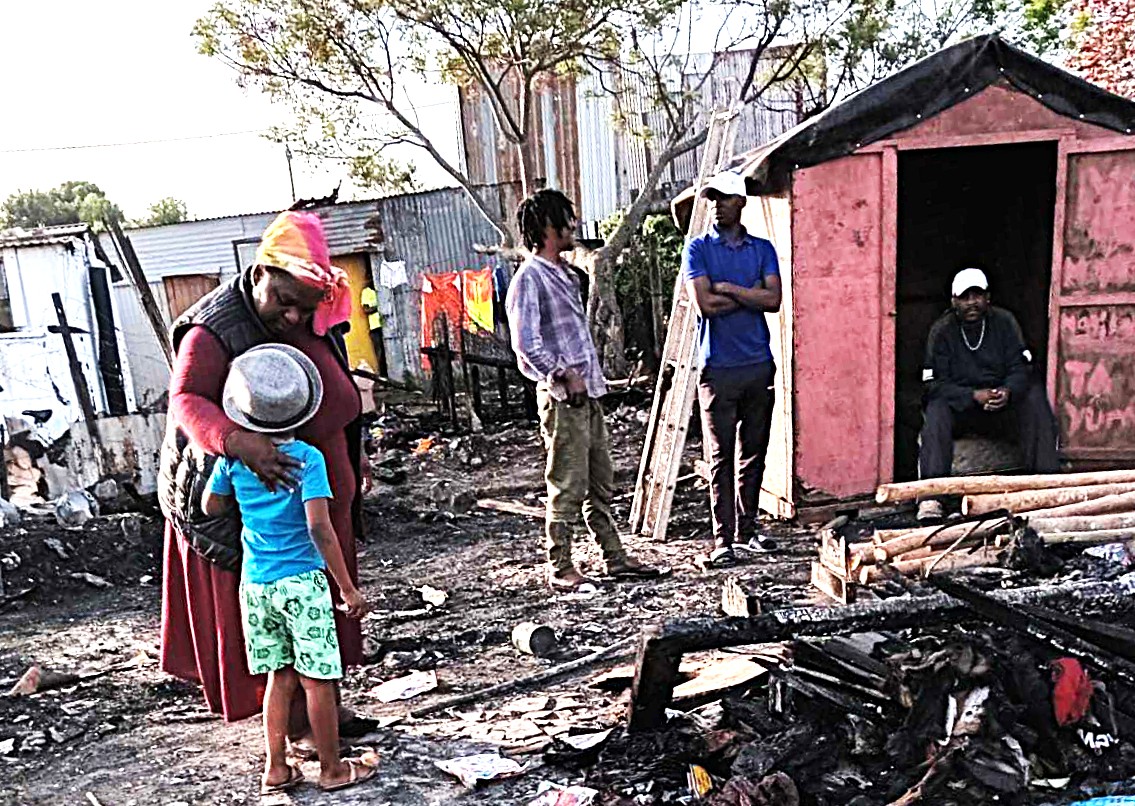
As cities expand, makeshift homes cluster around rubbish dumps, giving rise to informal settlements built from necessity.
IRFF UK has stepped in where government efforts fall short. “These issues must be resolved at the state level,” says Edward Hartley, IRFF UK manager, “but they’ve persisted for too long. We’ve got to do more. If we can save just a few children, we will have made a difference.”
That’s why IRFF UK is partnering with the Walmer Angel Project in Port Elizabeth (Gqeberha) to launch a second soup kitchen in Walmer G West.
The first kitchen, already supported by IRFF UK, feeds 330-350 people a day, five days a week. The second, started just days ago, will serve 280 people three times a week – if we can keep it running.
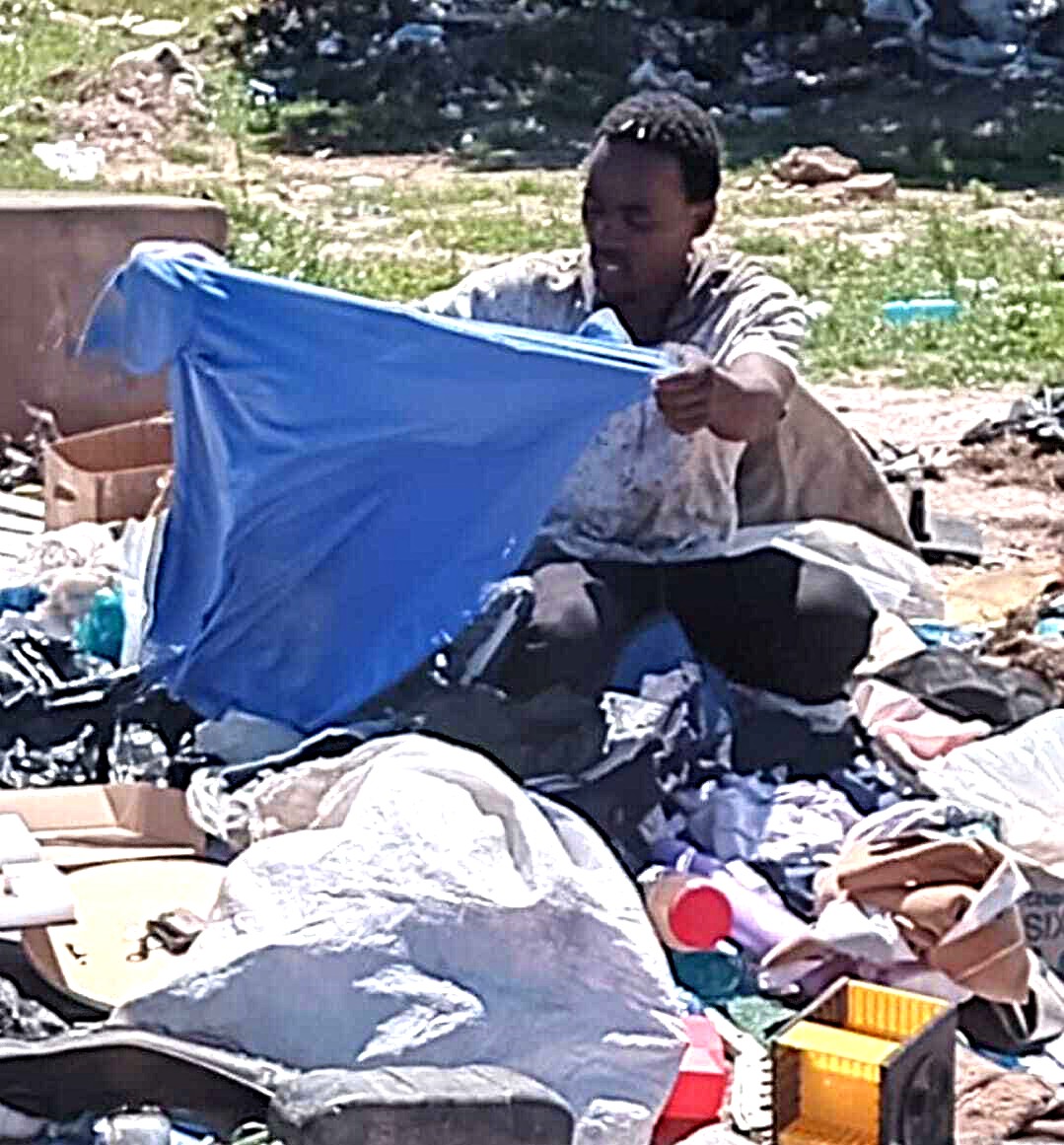
Amid heaps of unwanted clothes at a rubbish dump in Walmer township, this man searches for something usable - an overlooked shirt or an abandoned coat. Young children can sometimes be seen scratching for food at the tip.

Glenda Brunette, founder of the Walmer Angel Project, began her outreach in 2006.
She’s seen children sleeping on bare floors, surviving on a school meal of a chicken neck and rice, and collapsing from hunger and fear. Her team now ensures children are fed first. But the need is overwhelming.
Walmer Angels ran five kitchens before COVID. But then financial disaster struck and donors disappeared. So they had to close four. With our new push this month, they now have two.
"I can barely begin to explain how bad the situation is," Glenda says, adding: " But I will do everything in my power to change that in the future."
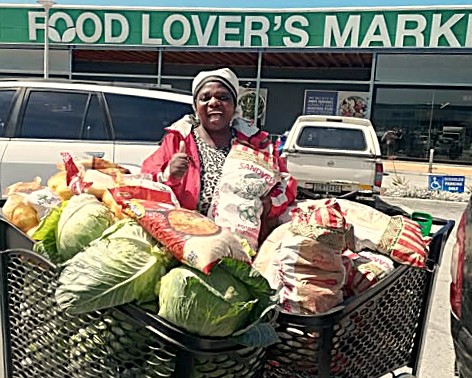
JULIA GETS A KICK OUT OF A GOOD DEAL - World Food Day 2025 called for action: "Hand in Hand for Better Foods and a Better Future!" We've already answered that call. But Julia needs more assistance.
CAN YOU HELP?
Every penny goes to the cause – food, fuel, and related costs. In the short term, we’ve reallocated funds from other areas in the hope that new donations will carry us through 2026.
We recently sent £600 to keep the new kitchen going into January. But we need £300/month to sustain it – and £500/month to grow the kitchen.
Please, give today. Your support helps us reach the children still waiting for a meal.
4 WAYS TO HELP
This isn’t just a story – it’s a call to action. Please be part of the response. Here are four ways:
1. Donate if you can. It could be a regular or a one-off monetary donation. We're pleased to say that just £10 provides around 120 meals to children who would otherwise go without.
2. Share this blog with friends, colleagues, or anyone who cares about child hunger. Awareness leads to action.
3. Connect with us on LinkedIn or Facebook or Website for real-time updates, stories from the field, and progress as it happens.
4. Champion the cause by starting a conversation, hosting a fundraiser, or simply spreading the word.
